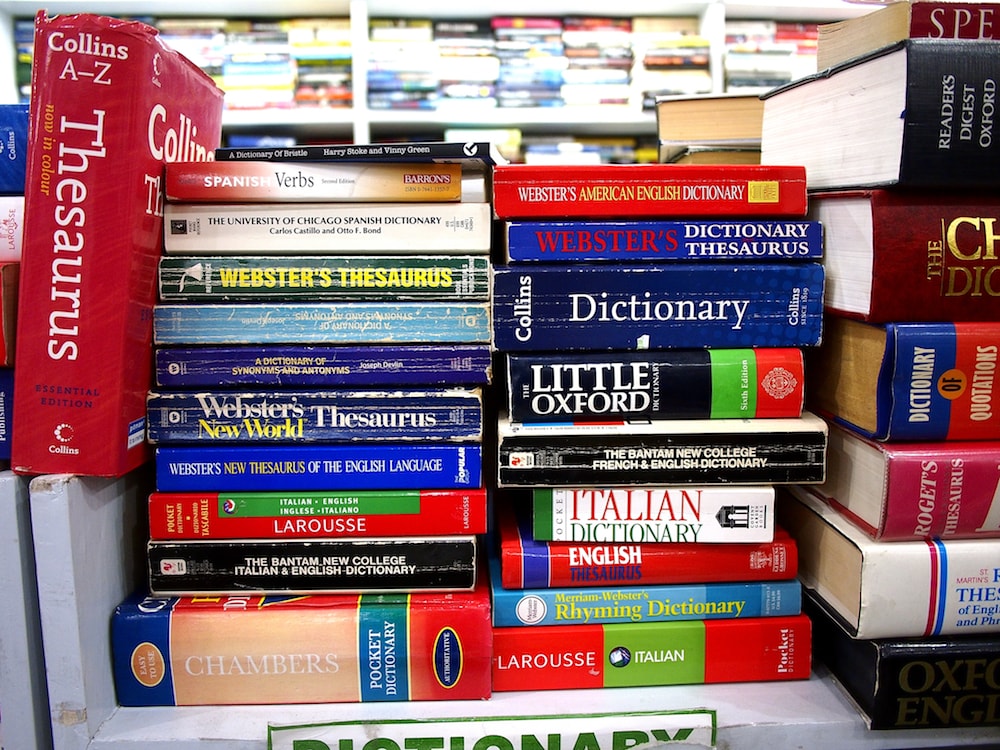A Lesson In Science Diction
3:13 minutes

 This is a part of Science Diction, a series digging into the scientific origin stories behind our words and language. Find all our stories and previous issues here.
This is a part of Science Diction, a series digging into the scientific origin stories behind our words and language. Find all our stories and previous issues here.
Did you know the word robot was only coined in 1922? And that quark was inspired by Finnegan’s Wake?
Words like these weren’t just plucked from thin air… behind each one is a fascinating origin story. Scientists use words and language just like us, and encoded in the language they use are etymologies, histories, and stories that often stretch back centuries—some even bleeding into the words we use in our everyday life.
[What are you collecting in your cabinet of curiosities?]
You can read these stories in Science Diction, a limited-run series about words and etymology. Johanna Mayer, a self-proclaimed word nerd and digital producer at Science Friday, joins guest host John Dankosky to tell us more about the project. Sign up for the Science Diction newsletter, and read previous issues here.
Johanna Mayer is a podcast producer and hosted Science Diction from Science Friday. When she’s not working, she’s probably baking a fruit pie. Cherry’s her specialty, but she whips up a mean rhubarb streusel as well.
JOHN DANKOSKY: And now it’s time for a little lesson in science diction. And no we’re not going to teach you how to enunciate cryptosporidium. I did it. I’m talking about diction as in the words we choose when we speak about science, words like zero and robot. Weren’t just plucked from thin air. Behind each one is a fascinating origin story which you can read about in Science Friday’s new weekly Science Diction newsletter. And here to tell us more about it is Science Friday digital producer Johanna Mayer. Johanna, thanks for joining us, thanks so much for being here.
JOHANNA MAYER: Hey John.
JOHN DANKOSKY: So what are we saying when we use words like zero or robot?
JOHANNA MAYER: So science is everywhere science is encoded in the words that we use and it’s baked into our surroundings. And zero is a really great example of a word with tons of historical and cultural back story. So the numerical concept of zero originated in India but our English word zero comes from the Arabic word zephyr, if you’ll excuse my poor pronunciation. But that’s the same root that gives us the English word, cypher which has this connotation of covertness or secrecy.
And there’s an interesting link there because the concept of zero as it worked its way through the Middle East up through Northern Africa eventually landed in zero during the time of the Christian Crusades. So not really great timing. And zero and all Arabic numerals were actually banned in Florence, Italy for a period of time in the 13th century.
JOHN DANKOSKY: So we almost lost zero altogether. But it’s back now. It’s been back for a while.
JOHANNA MAYER: It’s back it took until about the 15th century for zero to be widely accepted in the Western world and that’s largely thanks to merchants because who wants to do complicated arithmetic with Roman numerals? I don’t and I’m sure those merchants didn’t either.
JOHN DANKOSKY: OK so let’s move onto today’s word. The word is robot. Where does the word come from?
JOHANNA MAYER: Yeah that’s a relatively new word to the English language. We didn’t get it until 1922. And it comes from the famous Czech play Rossum’s Universal Robots or RUR by Karel Capek. And the premise of that play is that there’s this company that manufactures this fleet of biomechanical workers that are tasked with essentially doing everything that humans don’t feel like doing. So Capek needed a word for these workers and he drew upon the church Slavonic word, [? robota, ?] which means servitude or forced labor, or drudgery.
JOHN DANKOSKY: Interesting, so in that word, not some other word that could have meant the same thing?
JOHANNA MAYER: Well he originally called them [? labori, ?] which comes from the Latin for labor, but that just doesn’t really have the same ring to it. He thought it was a little too bookish. So at the suggestion of his brother Yosef, we have robot.
JOHN DANKOSKY: Yeah I think saying [? labori ?] in science fiction movies wouldn’t be as much fun.
JOHANNA MAYER: Not quite.
JOHN DANKOSKY: OK so how do you sign– where can you dig into all these past issues and all the work that you’re going to do moving forward in science fiction?
JOHANNA MAYER: Yeah head on over to ScienceFriday.com/sciencediction. You can read past issues, see tons of photos and images related to these words.
JOHN DANKOSKY: How are you choosing these words?
JOHANNA MAYER: You know it’s just curiosity, and calling up experts, and diving into the words that are around us.
JOHN DANKOSKY: OK, well, thank you. Johanna Mayer. She is Science Friday digital producer. Thanks so much for being here. I appreciate it.
JOHANNA MAYER: Thank you John.
JOHN DANKOSKY: And once again it’s ScienceFriday.com/sciencediction, that is diction with a D.
Copyright © 2018 Science Friday Initiative. All rights reserved. Science Friday transcripts are produced on a tight deadline by 3Play Media. Fidelity to the original aired/published audio or video file might vary, and text might be updated or amended in the future. For the authoritative record of Science Friday’s programming, please visit the original aired/published recording. For terms of use and more information, visit our policies pages at http://www.sciencefriday.com/about/policies/
Katie Feather is a former SciFri producer and the proud mother of two cats, Charleigh and Sadie.